Latest
Keep an Eye On With B.A. Johnson: Anthony Crawford
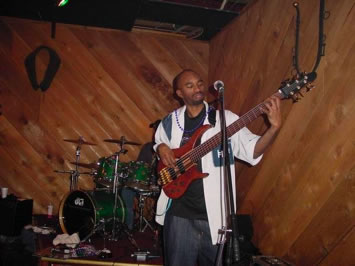
Chops and intelligence?! HMMM… It was bound to happen. I remember teaching a particularly competitive student as a teenage bass instructor in the early 1980’s. In a desperate attempt to get this person to understand that music is not a competition, I made the unknowingly prophetic remark, “man, there is a musician who’s yet still a baby who may grow up to be a remarkably innovative bassist!” Little did I know, then…
Anthony Crawford was born in 1981 to a very musical family that includes his father (drummer) Hubert “H-Bomb” Crawford and his gifted uncle (saxophonist) Hank Crawford! So, when we made friends on FaceBook I knew it was only a short matter of time before I would be allowed to introduce him to a wider audience! I love my job…
Anthony’s “Urban Jazz” features a wealth of deep grooves, 2-hand tapping, majestic soloing and melodic interplay. The compositions are (thankfully) beyond the scope of the typical “bass player makes a record no one digs”. I am convinced that much of what I am hearing from this adroit young bassist is the slightly unconventional influence of players such as Doug Wimbish, dUg Pinnick, and Mike Inez in his technical approach – instead of the typical list of players I find in a bassist’s bag. COOL! Again: thankfully. “AC” shows himself to be an instant classic, and he’s had an incredible journey since sitting-in with his dad with the Bette Midler band – at the age of 14! Here is Anthony Crawford!
BAJ: Hey man! Welcome to Bass Musician Magazine! Its good to hang for a few minutes and hear from you! Let’s start with the premise that produced “Urban Jazz”… what was the main theme you wanted to bring to your listening audience, and what was your primary goal for the disc’s release?
AC: Well the primary goal behind “Urban Jazz” is to approach a solo bass record with a pop-ish urban feel and, at the same time, bring fresh original music that everyone can enjoy. I’ve always thought that it would be cool to do a bass record but I wanted to have a different concept behind it. I hear a lot of bass records all the time… But I wanted to have a concept that would make me stand out from others bassists. Although I am a bass player, I am also a producer – as I have produced songs for rap and hip hop artists. I listen to a lot of urban stations and I always imagined what it would sound like if I could capture the urban feel of today’s music and turn that music it into a “bass album”. I also wanted to bring something unique to the listeners’ ears – while taking them on a (musical) journey. I wanted each song on my album to say something. Whether through the melody, or the way I played the solo, the vocals, and the groove… I hoped the listener would feel like I am taking them someplace they usually wouldn’t go themselves. Stanly Clarke told me to find what makes me unique, and write songs based upon that quality. So I took that idea and I came up with the “Urban Jazz” title – which is a “bass jazz album from an urban point of view”.
BAJ: Please describe your 2-hand ‘tapping’ technique and how you have developed it over the years?
AC: My 2-hand tapping technique… Hmmmm…. Well, there is a lot of Victor Wooten’s influence when it comes to my 2-hand tapping technique. I got his “A Show Of Hands” release when I was 16. When I got that album I said, “there is no way 1 person can be playing all of this!” (Laughter) So, I listened to that album and figured out what he was doing. I began applying what I thought he was doing to the bass. I sat with my CD player for 8-hours at a time figuring out how he was playing those songs the way he did. When I finally got the concept down, I took the same concept and played it my way. Then, I began learning other songs by learning the bass lines and melody at the same time.
As I started practicing that way I began to see a pattern. I realized that every time I tapped out songs… they felt like grooves! So, instead of thinking about a lot of notes, I looked at songs as 1 big groove! After that, a lot of songs started to come more easily, as far as 2-hand tapping technique is concerned.
Later on, as I got more comfortable with tapping, I started to approach tapping the way a piano player would. For example, if a pianist is soloing, they will play chords with their left hand and solo with their right hand. Sometimes they might also alter the chords with their left hand while playing the corresponding lines with their right hand to give an extra edge. I use that same concept.
BAJ: Unlike many young bassists, it seems you were listening to your dad’s music more than others bother to! Good! You site Geddy Lee and Eddie Van Halen as refreshingly unexpected influences! (Editor’s note: Geddy was my commencing influence – however I began playing in the late 1970’s!) What tunes really “hit you over the head” when you were younger?
AC: I have heavily influenced by rock musicians. Van Halen is one my favorite groups! The first album I got was “For Unlawful Carnel Knowledge”. The first song on that album, “Poundcake”, blew me away and I was hooked! Then I started to get their older recordings. Also, Geddy Lee always blows my mind when I heard him play! I love the way he writes songs. He always has his own sound, and he is very musical. BAJ, you’ve also said that you were into Geddy Lee in the 70’s! But, I didn’t get into him until “Roll The Bones” – which came out in the early 90’s. Like I did with Van Halen, I went back and got the older RUSH albums. Then I got a video that featured a lot of older RUSH videos. I used to watch that videotape, again and again, learning those songs and being amazed every time I saw Geddy! Just talking about this brings back good memories!
Another great band that was a big influence was Living Colour. The first record I got of theirs was “Time’s Up”. Every song blew me away! Then “Stain” came out…! That’s how I discovered Doug Wimbish. Doug’s style and approach opened up many doors for me! My favorite song that I still listen to from that album is “Go Away”!
BAJ: Even though you site a number of rock influences, you released a version of “Giant Steps” on “Urban Jazz”! Nicely done. That said, tell us about your approach to the tune, and what was the central theme of your brief, blazing solo?
AC: “Giant Steps” is a song I always wanted to learn how to play. I leaned the basics a while back, but I wanted to be able to solo over the changes. It is a really good exercise to be able to play though any difficult tune. So, I wanted to capture that aspect on my CD, and I wanted to surprise listeners with a version of this great tune. Even though my disc is an urban approach to jazz music, I also wanted to feature a jazz standard that every jazz musician would know and feature myself on that song.
Gear News
New Gear: Esopus Guitars Launches New Acoustic/Electric Bass
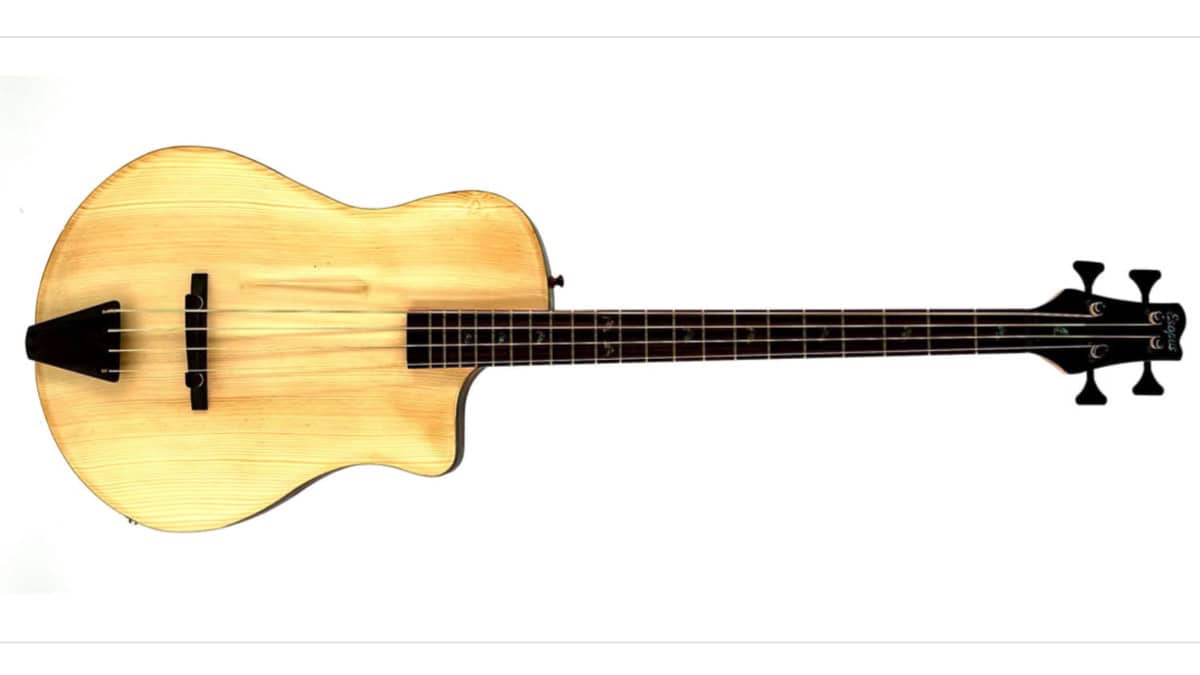
Esopus Guitars Launches New Acoustic/Electric Bass…
Esopus Guitars is proud to announce the new “Tailwater” bass guitar, from legendary bass luthier Stuart Spector. This 32” scale bass is handcrafted by Stuart using the only finest woods and components at the Esopus Guitar workshop located near Woodstock NY in the Catskill Mountains.
From its fully carved spruce top (the top is carved on both its exterior and interior surfaces) with a thumb rest that is elegantly carved into the top, to its custom-made Fishman piezo pickup and super hard Carnauba wax finish, every detail of the Tailwater is part of creating the ultimate playing experience.
The Tailwater bass features a fully chambered spruce over alder body (15.5″ lower body bout width, 2.25″ body thickness measuring from the peak of the carved top) that delivers a super comfortable tonal tool for all your low-end needs.
Each Tailwater bass is hand-signed and numbered on the back of the peghead by Stuart Spector. A very limited number of Tailwater basses are handcrafted each year at the Esopus workshop.
“I am proud to present the Tailwater bass, a bass that I have spent the last three years perfecting. The Tailwater is a culmination of all of my 45 years of experience, knowledge, and passion for bass guitar crafting. I am so eager to hear what fellow musicians create with this exciting new instrument.” -Stuart Spector
Direct Pricing : $4995.00 plus options.
For more information about Esopus Guitars and Stuart Spector’s handcrafted instruments, visit www.EsopusGuitars.com.
Bass Videos
Tour Touch Base (Bass) with Ian Allison

Ian Allison Bassist extreme…
Most recently Ian has spent the last seven years touring nationally as part of Eric Hutchinson and The Believers, sharing stages with acts like Kelly Clarkson, Pentatonix, Rachel Platten, Matt Nathanson, Phillip Phillips, and Cory Wong playing venues such as Radio City Music Hall, The Staples Center and The Xcel Center in St. Paul, MN.
I had a chance to meet up with him at the Sellersville Theater in Eastern Pennsylvania to catch up on everything bass. Visit online at ianmartinallison.com/
Latest
This Week’s Top 10 Basses on Instagram
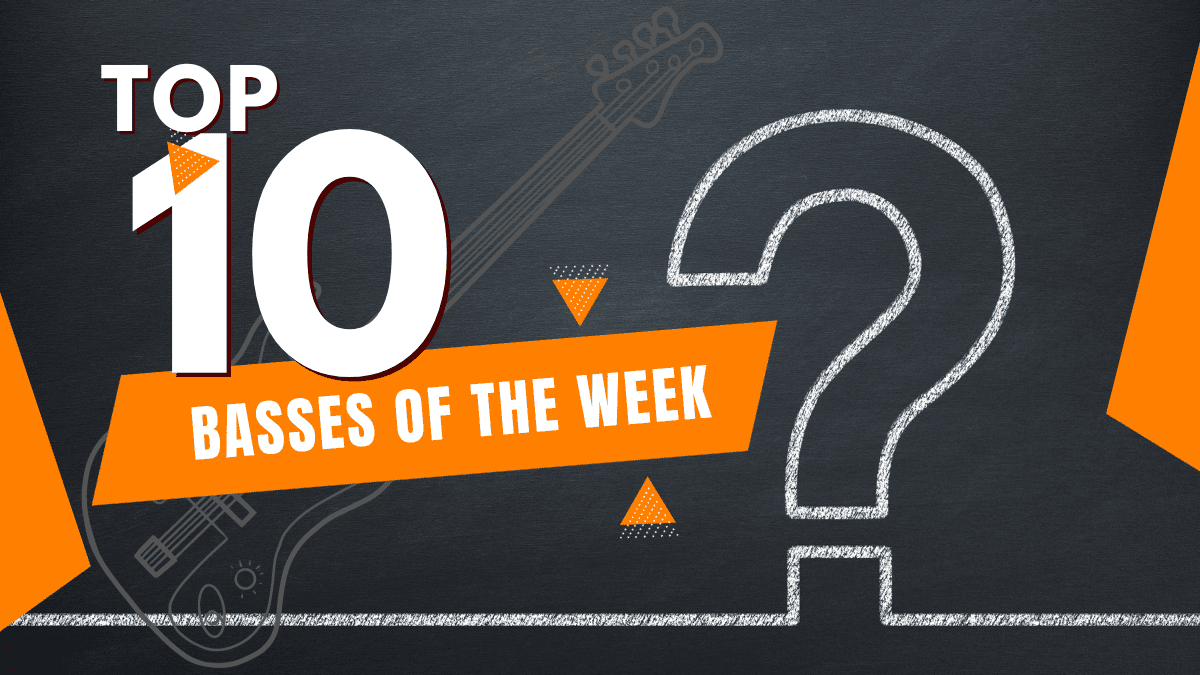
Check out our top 10 favorite basses on Instagram this week…
Click to follow Bass Musician on Instagram @bassmusicianmag
FEATURED @officialspector @bqwbassguitar @brute_bass_guitars @phdbassguitars @ramabass.ok @tribe_guitars @woodguerilla_instruments @mikelullcustomguitars @jcrluthier @elegeecustom
Features
Interview With Audic Empire Bassist James Tobias
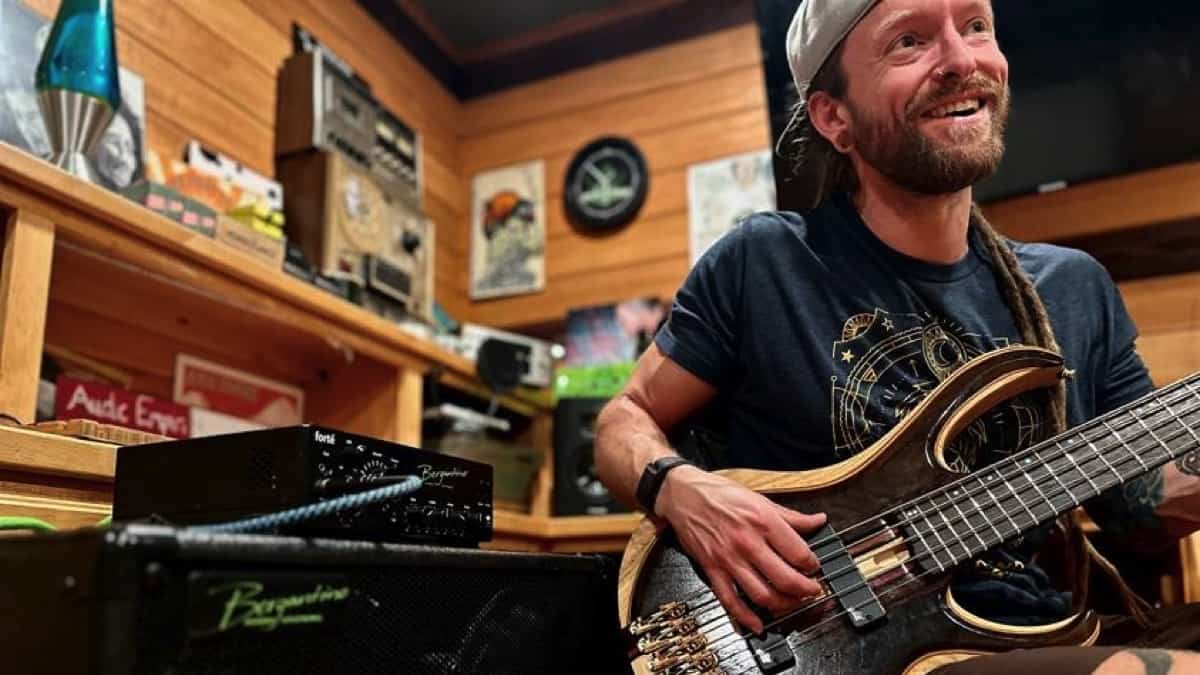
Checking in with Bergantino Artist James Tobias
James Tobias, Bassist for psychedelic, Reggae-Rock titans Audic Empire shares his history as a musician and how he came to find Bergantino…
Interview by Holly Bergantino
James Tobias, a multi-talented musician and jack-of-all-trades shares his story of coming up as a musician in Texas, his journey with his band Audic Empire, and his approach to life and music. With a busy tour schedule each year, we were fortunate to catch up with him while he was out and about touring the US.
Where were you born and raised?
I was born in Dallas, Texas and lived in the Dallas area most of my life with the exception of 1 year in Colorado. I moved to the Austin area at age 18.
What makes the bass so special to you particularly, and how did you gravitate to it?
I honestly started playing bass because we needed a bass player and I was the one with access to a bass amp and bass. I played rhythm guitar and sang up until I met Ronnie, who I would later start “Audic Empire” with. He also played rhythm guitar and sang and we didn’t know any bass players, so we had to figure something out. I still write most of my songs on guitar, but I’ve grown to love playing the bass.
How did you learn to play, James?
I took guitar lessons growing up and spent a lot of time just learning tabs or playing by ear and kicked around as a frontman in a handful of bands playing at the local coffee shops or rec centers. Once I transitioned to bass, I really just tried to apply what I knew about guitar and stumbled through it till it sounded right. I’m still learning every time I pick it up, honestly.
You are also a songwriter, recording engineer, and a fantastic singer, did you get formal training for this?
Thank you, that means a lot! I had a couple of voice lessons when I was in my early teens, but didn’t really like the instructor. I did however take a few lessons recently through ACC that I enjoyed and think really helped my technique (Shout out to Adam Roberts!) I was not a naturally gifted singer, which is a nice way of saying I was pretty awful, but I just kept at it.
As far as recording and producing, I just watched a lot of YouTube videos and asked people who know more than me when I had a question. Whenever I feel like I’m not progressing, I just pull up tracks from a couple of years ago, cringe, and feel better about where I’m at but I’ve got a long way to go. Fortunately, we’ve got some amazing producers I can pass everything over to once I get the songs as close to finalized as I can.
Describe your playing style(s), tone, strengths and/or areas that can be improved on the bass.
I honestly don’t know what my style would be considered. We’ve got so many styles that we play and fuse together that I just try to do what works song by song. I don’t have too many tricks in the bag and just keep it simple and focus on what’s going to sound good in the overall mix. I think my strength lies in thinking about the song as a whole and what each instrument is doing, so I can compliment everything else that’s going on. What could be improved is absolutely everything, but that’s the great thing about music (and kind of anything really).
Who were your influencers in terms of other musicians earlier on or now that have made a difference and inspired you?
My dad exposed me to a lot of music early. I was playing a toy guitar while watching a VHS of Stevie Ray Vaughan and Double Trouble live at SXSW on repeat at 4 years old saying I wanted to “do that” when I grew up. I was the only kid in daycare that had his own CDs that weren’t kid’s songs. I was listening to Led Zeppelin, Hendrix, and The Doors when I could barely talk. I would make up songs and sing them into my Panasonic slimline tape recorder and take it to my preschool to show my friends. As I got older went through a bunch of music phases. Metal, grunge, rock, punk, hip hop, reggae, ska, etc. Whatever I heard that I connected to I’d dive in and learn as much as I could about it. I was always in bands and I think I kept picking up different styles along the way and kept combining my different elements and I think that’s evident in Audic’s diverse sound.
Tell me about Audic Empire and your new release Take Over! Can you share some of the highlights you and the band are most proud of?
Takeover was an interesting one. I basically built that song on keyboard and drum loops and wrote and tracked all my vocals in one long session in my bedroom studio kind of in a stream-of-consciousness type of approach. I kind of thought nothing would come of it and I’d toss it out, but we slowly went back and tracked over everything with instruments and made it our own sound. I got it as far as I could with production and handed it off to Chad Wrong to work his magic and really bring it to life. Once I got Snow Owl Media involved and we started brainstorming about a music video, it quickly turned into a considerably larger production than anything we’ve done before and it was such a cool experience. I’m really excited about the final product, especially considering I initially thought it was a throwaway track.
Describe the music style of Audic Empire for us.
It’s all over the place… we advertise it as “blues, rock, reggae.” Blues because of our lead guitarist, Travis Brown’s playing style, rock because I think at the heart we’re a rock band, and reggae because we flavor everything with a little (or a lot) of reggae or ska.
How did you find Bergantino Audio Systems?
Well, my Ampeg SVT7 caught fire at a show… We were playing Stubbs in Austin and everyone kept saying they smelled something burning, and I looked back in time to see my head, perched on top of its 8×10 cab, begin billowing smoke. We had a tour coming up, so I started researching and pricing everything to try and find a new amp. I was also fronting a metal band at the time, and my bass player’s dad was a big-time country bass player and said he had this really high-end bass amp just sitting in a closet he’d sell me. I was apprehensive since I really didn’t know much about it and “just a little 4×10” probably wasn’t going to cut it compared to my previous setup. He said I could come over and give it a test drive, but he said he knew I was going to buy it. He was right. I immediately fell in love. I couldn’t believe the power it put out compared to this heavy head and cumbersome cab I had been breaking my back hauling all over the country and up countless staircases.
Tell us about your experience with the forte D amp and the AE 410 Speaker cabinet.
It’s been a game-changer in every sense. It’s lightweight and compact. Amazing tone. And LOUD. It’s just a fantastic amp. Not to mention the customer service being top-notch! You’ll be hard-pressed to find another product that, if you have an issue, you can get in touch with the owner, himself. How cool is that?
Tell us about some of your favorite basses.
I was always broke and usually working part-time delivering pizzas, so I just played what I could get my hands on. I went through a few pawn shop basses, swapped in new pickups, and fought with the action on them constantly. I played them through an Ampeg be115 combo amp. All the electronics in it had fried at some point, so I gutted it out and turned it into a cab that I powered with a rusted-up little head I bought off someone for a hundred bucks. My gear was often DIY’d and held together by electrical tape and usually had a few coats of spray paint to attempt to hide the wear and tear. I never really fell in love with any piece of gear I had till I had a supporter of our band give me an Ibanez Premium Series SDGR. I absolutely love that bass and still travel with it. I’ve since gotten another Ibanez Premium Series, but went with the 5-string BTB. It’s a fantastic-sounding bass, my only complaint is it’s pretty heavy.
Love your new video Take Over! Let us know what you’re currently working on (studio, tour, side projects, etc.)
Thank you!! We’ve got a LOT of stuff we’re working on right now actually. Having 2 writers in the band means we never have a shortage of material. It’s more about getting everything tracked and ready for release and all that goes into that. We just got through filming videos for 2 new unreleased tracks with Snow Owl Media, who did the videos for both Love Hate and Pain and Takeover. Both of these songs have surprise features which I’m really excited about since these will be the first singles since our last album we have other artists on. We’ve also got a lot of shows coming up and I’ve also just launched my solo project as well. The debut single, “Raisin’ Hell” is available now everywhere. You can go here to find all the links distrokid.com/hyperfollow/jamestobias/raisin-hell
What else do you do besides music?
For work, I own a handyman service here in Austin doing a lot of drywall, painting, etc. I have a lot of hobbies and side hustles as well. I make custom guitar straps and other leather work. I do a lot of artwork and have done most of our merch designs and a lot of our cover art. I’m really into (and borderline obsessed) with health, fitness, and sober living. I have a hard time sitting still, but fortunately, there’s always a lot to do when you’re self-employed and running a band!
Follow James Tobias:
jamestobiasmusic.com
Facebook.com/james.tobias1
Instagram.com/ru4badfish2
TikTok.com/@jamestobiasmusic
audicempire.com
Bass CDs
New Album: Avery Sharpe, I Am My Neighbors Keeper
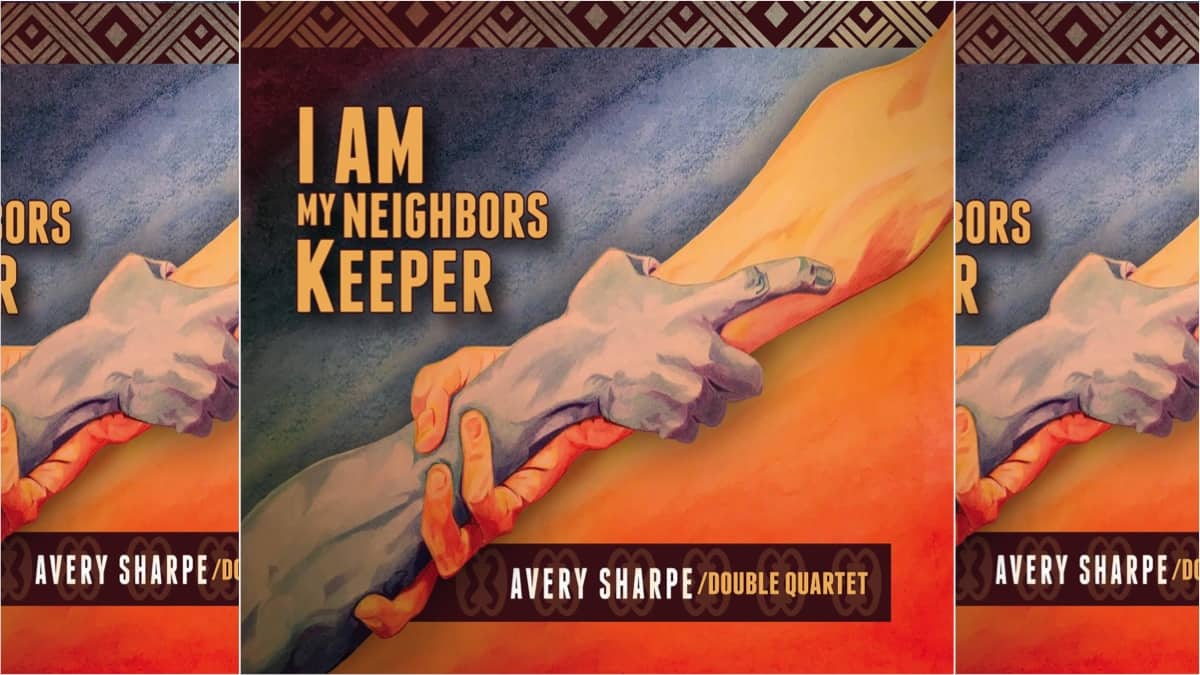
Avery Sharpe and his Double Quartet to release, I Am My Neighbors Keeper
A new recording will be released on JKNM Records by internationally renowned bassist/composer Avery Sharpe, “I Am My Neighbors Keeper” is scheduled for release in June 2024.
Sharpe has composed a new work that highlights our commitment to one another. Avery initiated the project as a response to the political and racial division that has grown over the past seven years in the country. “The U.S political climate has drastically changed in the past 40-plus years, especially during the last seven of those years. In this age of greed, which Sharpe refers to as “IGM,” I Got Mine, basic human compassion has been eroded. Racial, economic and social strides are being turned back.
“We have food insecurity, the unhoused, pandemics, school shootings, domestic violence, and an opioid problem, just to name some. There is a need to remind people that each of us is here on this planet for a very short period of time. It doesn’t matter if one has a religious approach or a secular approach, it all comes down to concern and compassion for each other. Through these compositions and recordings, Avery’s mission as an artist is to remind us that we all are interconnected and that ‘We Are Our Neighbor’s Keeper.’ When we help to uplift one, we uplift everyone,” Sharpe said.
Each movement in the piece describes the values we should strive for to help one another for this multi-media (video slide show during performance) and multi-discipline performance.
Many of Sharpe’s projects and recordings have been about “standing on the shoulders of ancestors, heroes and sheroes.” Among his recordings and projects, include “Running Man” (celebrating the athlete Jesse Owens), “Ain’t I A Woman” (about Sojourner Truth), and his most recent project “400: An African American Musical Portrait” (marking the 400 years from 1619 to 2019).
Avery Sharpe has recorded and performed with many jazz greats from Dizzy Gillespie to Yusef Lateef. He had an illustrious run of 20 plus years with the legendary Jazz pianist McCoy Tyner, of which he recorded more than 25 records with Mr. Tyner and performed countless worldwide concerts.
Visit online at averysharpe.com/



















